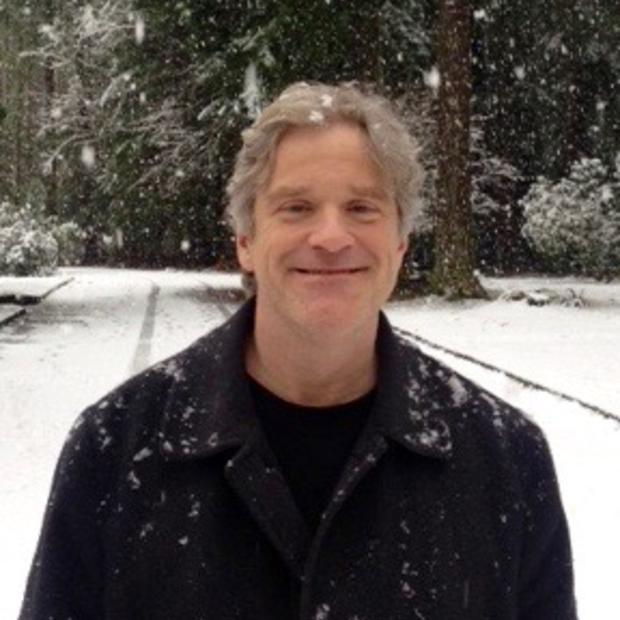There are times when the arc of Greek tragedy morphs into horror. On Friday the saga of Shawna Forde, 41, birddogged and recounted by the Everett Herald, abruptly turned into a perverted cross between Euripides and the Coen brothers. On May 30, authorities allege, Forde, along with fellow Everett-ite and Minuteman American Defense honcho Jason "Gunny" Bush, and another man, Albert Gaxiola, committed a home invasion in rural Arizona that left a nine-year old child and her father dead.
It was a ferocious crime with an overlay of hate (the family was Mexican), but an apparent motive as old as Eve: the cardinal sin of greed. One more "God no!" layer was added Monday when the Herald's Scott North reported that Forde's compatriot, Jason Bush, has also now been charged with the murder of an Hispanic man in Eastern Washington a dozen years ago.
For months the Herald has ably tracked Forde's cascading bad luck, legerdemain, and conspiracy. Her ex-husband was mysteriously shot in December of 2008, and Forde herself was allegedly raped and beaten the subsequent week. In January of this year, Forde suffered a bullet wound to her arm. Was she the target of pro-immigrant forces incensed by her border-watch activism? What emerged instead was a clouded picture that appeared part X Files and part paranoid drivel.
Forde's straight line from the banality of a lost soul to the evil of American terrorist now seems preordained. She was the unstable leader of an Everett-based nativist fringe group, Minutemen American Defense. A classic misfit and troubled kid searching for a higher calling, she became a hate cliche, emblematic of the mass-movement absolutists described by Eric Hoffer in his 1951 masterpiece, The True Believer.
Hoffer observed how nationalists, Communists, and extremists of all stripes are curiously interchangeable. True believers feel oppressed and gravitate to movements that portend a new day in the stark clarity of pure beliefs.
Shawna Forde and her American Minutemen Defense aren't an historic blip to be dismissed as outliers that evolved in a vacuum. Time "streams," as Richard Neustadt and Ernest May have argued. Tease up the thread of Shawna Forde and the long seam of nativist bigotry begins to unravel, much of it here in the Northwest. There were the Aryan Nations, the Militia movement of the 1990s, the anti-Indian-fishing forces, the John Birch Society, executive order 9066 to intern Japanese Americans during WWII, the Fascist Silver Shirts active on Whidbey Island, the KKK, the American Protective Association, and anti-Chinese pogroms to name a few. They all stood on the shoulders of the Know Nothing movement of the 1840s and those perennial forces that scapegoat and deal in xenophobia.
The leaders of these groups wrote a kind of lesser-angels' catechism that indoctrinated the credulous and the vulnerable. As Hoffer wrote years ago, "It is by its promise of a sense of power that evil often attracts the weak."
One of the best books written about any community, Norman H. Clark's Mill Town, documents some of the history of Everett's nativist elements. John W. Frame, a progressive news editor and politico in the 1890s, tried to fight the bigoted American Protective Association (APA) which extended its tendrils into both political parties and the populist movement. Clark writes:
When Frame first settled in Everett, the APA had already applied pressures to have the federal government close a Catholic school which had for years served Indian families at Tulalip. The APA controlled the city school board and was making the most of the confusion in county and municipal politics..."Apaism," as Frame called it, easily infected every dispute or debate. Frame was infuriated by the political behavior of many recent immigrants from Norway, Sweden, Germany, and England — some of them unable to speak English — who had swallowed "Apaism" and were incanting "American for Americans" against the local Catholics, most of whom were native born.
It all sadly rings true. My own Norse grandparents bolted from Everett's First Lutheran Church in the early 1900's because they feared it had grown "too damn much like the Catholics." (Someone at church must have brought in a poinsettia or, worse, smiled at them.)
Everett, like most Western towns, is chiaroscuro, weaving together the forces of light and dark. The 1916 Everett Massacre marked the culmination of the city's radicalism and class conflict as the Industrial Workers of the World (IWW) battled a sadistic county Sheriff, Donald McRae.
On Friday the PBS program NOW cited a Department of Homeland Security report predicting an uptick of right-wing domestic violence. The Forde story now falls together with the shooting of abortion doctor George Tiller and the murder of security guard Stephen Johns by white supremacist James von Brunn at the Holocaust Memorial Museum.
It's easy to bemoan Shawna Forde's self-styled end. It would be better, however, to conjure something remedial and creative to anticipate the Northwest's future Fordes. Everett-ites, for example, might use the peace-park conversion of the Aryan Nations compound in Hayden Lake, Idaho, as a template. We could pool our money, purchase Forde's house, and turn it into a center for tolerance training or dispute resolution. Perhaps it could house the Snohomish County Human Rights Commission — presupposing that the county council passes the enabling human rights ordinance.
The facility's name would be the one decision not requiring debate: The Brisenia Flores Center, in memory of a very innocent nine-year-old girl.


